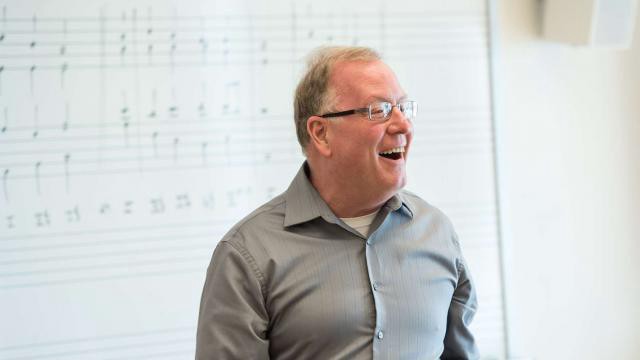We take a closer look at the wildly ambitious 1808 concert which debuted no less than two symphonies, a piano concerto, and a new choral piece (plus a selection of other favorites) in a frigid, four-hour long musical marathon.

On a freezing cold winter’s night in Vienna, December 22, 1808, one of the most legendary concerts in the history of music took place. In it, Beethoven premiered not just the famous Fifth Symphony (“Dah dah dah daaah”) but the Sixth (aka the Pastoral Symphony) plus the Choral Fantasy and a largely improvised piano concerto, performed by the composer himself.
In terms of the variety, quality, and quantity (4+ hours!) of music showcased, it was an epic event, however the concert also achieved a level of infamy due to some significant snags leading up to and during the performance itself.
Beethoven: Composer, Producer & Entrepreneur
Putting on a concert like this was itself a huge undertaking for Beethoven. There was no concert hall in Vienna during Beethoven’s time, so composers would seek out locations like restaurants, ballrooms and theaters to get their music out and heard in public. The December 1808 concert was self-produced by Beethoven and he secured the Theater-an-der-Wien, one of the largest and grandest theaters in Vienna, for the occasion.
Then there was the question of securing musicians to perform. There was no Vienna Philharmonic at this time, and many of the members of the theater’s professional orchestra had a scheduling conflict that prevented them from playing the concert. This meant amateurs were hired in to fill the gaps. Music historian Christopher Gibbs says of the final ensemble, “I think we would view it as one of the worst community orchestras that we might encounter today.”
Banned from Rehearsal
To make matters worse, relations between Beethoven and the orchestra were tense. Under-rehearsed and with the ink barely dry on the Choral Fantasy, things got so bad that the composer was allegedly banned from rehearsal in the days leading up to the concert and only allowed back in the room for the pieces on which he was performing. And then the soloist in the Choral Fantasy quit…
On the night of the concert, the replacement singer who was hired in at the last minute suffered acute stage fright and bungled the aria. In fact, things got so out of whack during the Choral Fantasy that the orchestra broke down and had to stop and restart the piece.
Critical Reception
The local music press at the time hardly knew what to make of the mammoth concert, declaring that “To judge all these pieces after one and only hearing, … so many were performed one after the other, and most of them are so grand and long, is downright impossible.”
The freezing temperatures in the theater cooled the enthusiasm even of Beethoven’s most ardent of supporters, including composer Johann Friedrich Reichardt, sitting with Beethoven’s patron Prince von Lobkowitz, who related: “There we sat, in the most bitter cold, from half past six until half past ten, and confirmed for ourselves the maxim that one may easily have too much of a good thing, still more of a powerful one.”
From a modern vantage point, Beethoven biographer Barry Cooper refers to the concert as the “most remarkable” of Beethoven’s career in terms of its content. California Symphony Music Director Donato Cabrera agrees: “The premiere of Beethoven’s 5th, 6th, and Choral Fantasy on that cold December night wasn’t in any way a disaster. It was an incredible achievement to self-produce an entire concert such as this one.”
The evening was also remarkable in that by 1808 Beethoven, aged 38, was in the grip of deafness. His fiery performance at the piano in that concert would be the last time he would perform as a concerto soloist in public, with subsequent works for piano being composed for others to play. Some seven years later, his hearing was fully gone and he retreated from public life, however he would continue to compose until his death in 1827.


